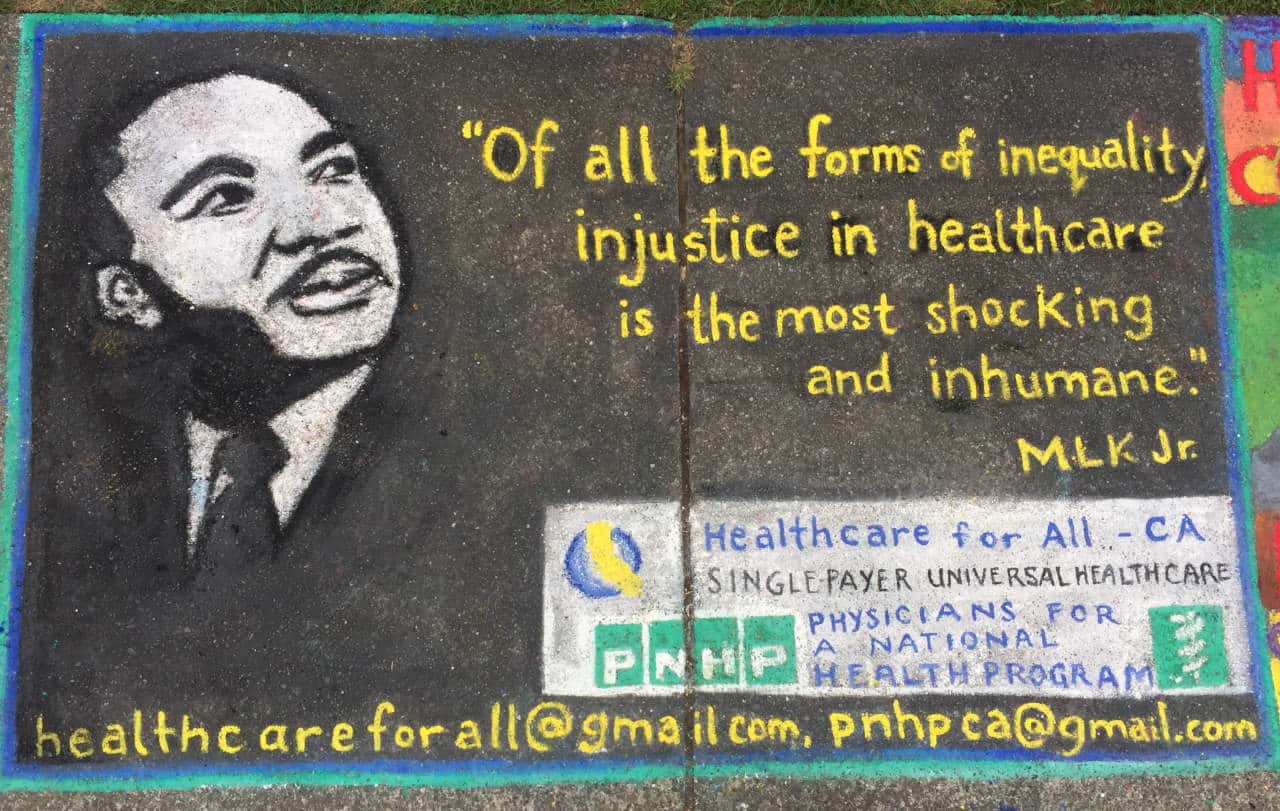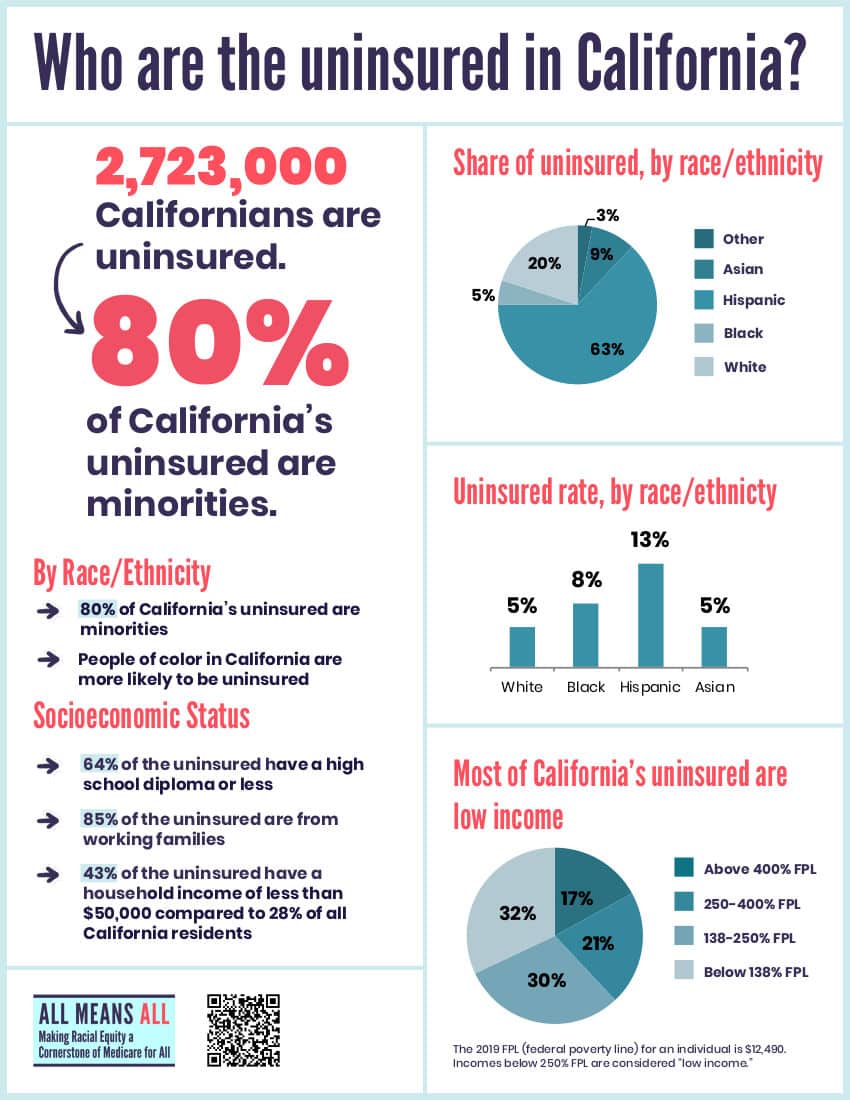Single payer health care is a social justice issue
We believe single payer is a SOCIAL JUSTICE ISSUE: people of color, women, LGBTQ+ communities, immigrants, and people with disabilities are disproportionately uninsured and unable to receive the care they need. Single payer would provide comprehensive health insurance equally for every American. This is an important and crucial step toward a more just society.


We believe single payer is a LABOR ISSUE: health care costs increase every year for workers while wages remain stagnant. Single payer would free access to health insurance from employment. No more eligibility fluctuations based on jobs, injury, incomes, age, retirement, marriage, divorce.
We believe that single payer is an ENVIRONMENTAL ISSUE: adverse health effects of climate change remain unmitigated and have a greater impact on low income communities and people of color. Single payer can provide sufficient funding and resources for public health that addresses adverse health effects caused by inequitable exposure to pollutants and ensures a timely, comprehensive competent response to regional and state-wide health crisis.
We believe single payer is an ECONOMIC ISSUE: taxpayers and businesses waste billions of dollars annually to subsidize pharmaceutical and insurance corporations’ profits without ensuring health care security. It’s time to put people over profits.
EVERYBODY IN, NOBODY OUT.
Who are the uninsured in California?
The infographic below was created by Social Security Works for the All Means All Campaign. All Means All is a campaign to center racial equity and the elimination of minority health disparities in the creation of Medicare for All.

9 Freedoms of Health Justice
Article by Ira Dember: 9 Freedoms of Health Justice. A Sample DECLARATION OF FREEDOM: | by Ira Dember | Medium
DECLARATION OF FREEDOM
We hereby declare that all people in the United States should be able to access comprehensive healthcare as a human right, including (but not limited to) the following freedoms:
1. FREEDOM to obtain medically necessary healthcare regardless of personal financial means, without additional burden.
2. FREEDOM to obtain said care regardless of employment status.
3. FREEDOM to receive comprehensive care and treatment including primary and preventive care, medical, dental, mental health, prescription drugs, addiction treatment, hearing and eye care, women’s health and pediatrics, hospitalization, surgery, rehabilitation, long term care, and related medically necessary products and services.
4. FREEDOM to choose doctors and other providers regardless of “networks” or other fabricated obstacles restricting access to care.
5. FREEDOM to obtain necessary care free of charge at point of service with no bills, medical debt or fear of resulting financial distress.
6. FREEDOM from the need to self-ration medically necessary care and prescription drugs.
7. FREEDOM to obtain care without excessive paperwork. This can mean simply show a card, get treated, go home.
8. FREEDOM from health insecurity such as fear and stress stemming from uncertainty about qualifying for needed care and paying for it.
9. FREEDOM for patients and providers to thrive in a true “free market.”
To enable this vision of FREEDOM, we call upon every Congress member to support universal healthcare as embodied in HR 1384, the Medicare for All Act of 2019, or equivalent, and to swiftly enact such legislation, especially in light of the Covid-19 pandemic.
Further, we recognize that multiple economic studies predict universal healthcare will produce significant net job growth for American workers while removing a drag on wages.
And further, to ensure economic sustainability:
We support the “single payer” concept as endorsed by more than 200 economists in their May 21, 2019 open letter to Congress and 2,000+ physicians in their January 21, 2020 letter in the New York Times.
We recognize that economic analyses across the political spectrum show “single payer” can save US taxpayers and families hundreds of billions of dollars a year in administrative efficiencies and other net cost savings — freeing up potentially trillions of dollars per decade for productive use, stimulating the economy, a boon for businesses.